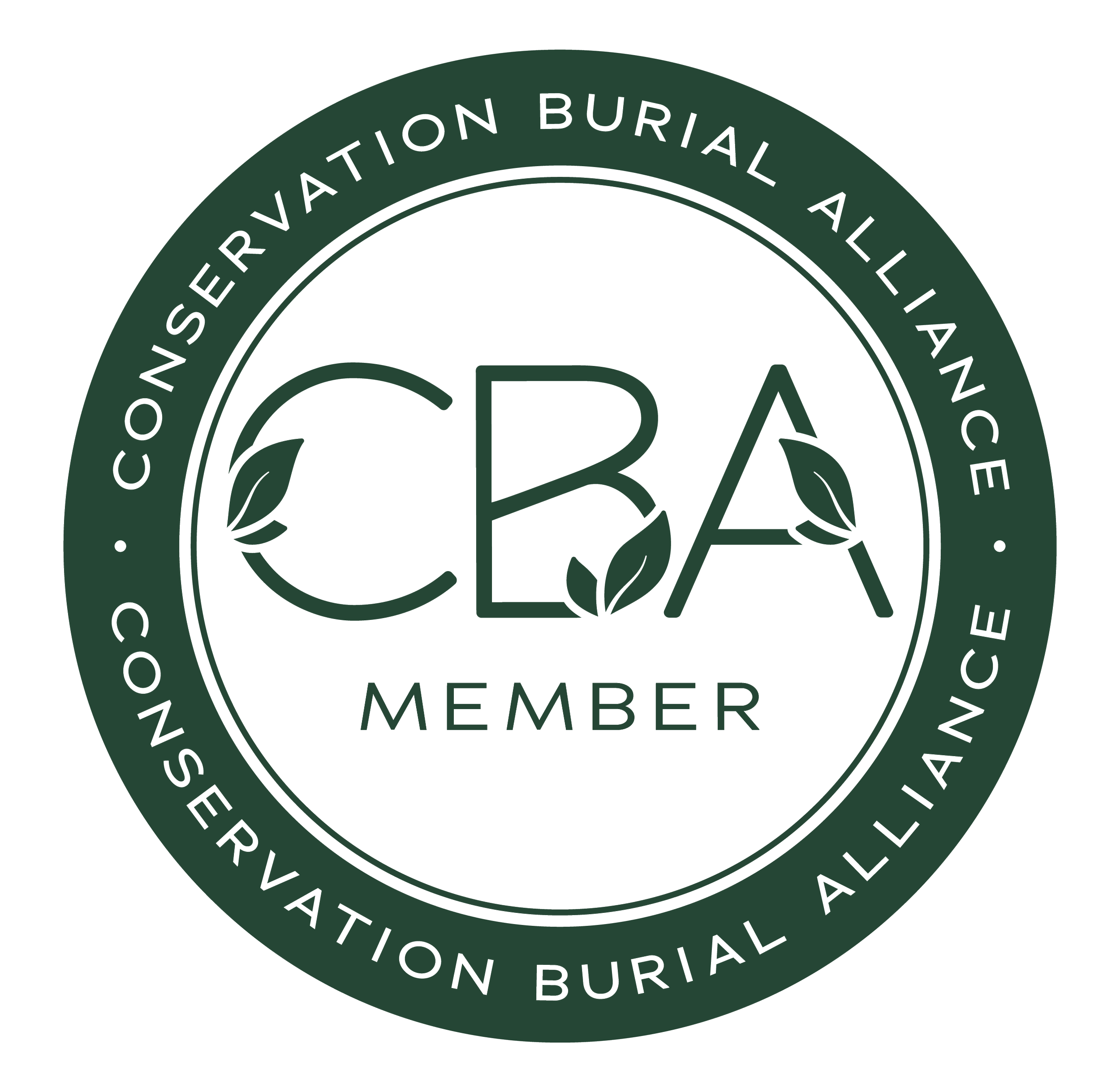Click on the links below for answers to our most frequently asked questions:
What is a home funeral?
A home funeral is when family or friends care for their deceased loved one, usually at home. Instead of hiring a funeral home, family and friends do everything including keeping the body cool, transporting the body to the cemetery, and completing the state mandated paperwork. They are also sometimes referred to as family-directed funerals. If there are specific tasks family and friends would rather not complete themselves, a funeral home may be willing to contract for those services.
What does Florida law say about home funerals?
The handbook for the Office of Vital Statistics for the Florida Department of Health (chapter 4) says there may be some situations where a family wishes to care for their own dead and permitting they follow all the laws and rules that pertain to funeral directors and vital statistics they may act as their own funeral director. Scroll down to see an excerpt from the handbook.
Florida Statute: 382.008(2)(a) says “In the absence of the funeral director, the physician or other person in attendance at or after the death … shall file the certificate of death.”
Are there any resources for those who want to do this?
PCCC has helped numerous people learn about the legal framework for having a home funeral. There are also a number of organizations and resources at your disposal, including:
National Home Funeral Alliance ➤
The National Home Funeral Alliance (NHFA) is a nonprofit 501c3 organization committed to supporting home funeral education.
Funeral Consumers Alliance is the only national consumer organization that monitors the funeral industry, keeping a close eye on industry trends and advocating for fair practices on the behalf of consumers.
Final Friends (Alachua County) ➤
Final Friends of Gainesville is an independent group of community volunteers who provide free education, guidance, support and resources for a “home funeral” to any individual or family in the State of Florida who wants to care for their own deceased loved ones prior to burial or cremation.
How do I start planning for a home funeral?
If you’re planning on having a home funeral with a burial at PCCC please call us at 352-317-7307 to discuss your situation. Every circumstance is different, and we will help and guide to the best of our ability.
You should also contact your county’s Office of Vital Statistics to discuss what you are planning on doing and what you will need from them. Because home funerals are not common you may need to meet with your local office to create a plan to accomplish the necessary steps.
Excerpt from the
2016 Office of Vital Statistics Handbook
2016 Office of Vital Statistics Handbook
FINAL DISPOSITION WITHOUT THE SERVICES OF A LICENSED FUNERAL PROFESSIONAL
There are some instances when a family wishes to handle final disposition for their deceased loved one; they want to act as their own funeral director. The family member must follow all the laws and rules that pertain to funeral directors, as well as vital statistics.
Vital statistics is concerned with the proper and timely filing of the burial transit permit and the death record, as outlined in Chapter 382, Florida Statutes. Vital statistics jurisdiction does not extend to the actual handling of the remains. Inquiries form families wishing to dispose of loved ones remains without using the services of a licensed funeral director/direct disposer must meet the requirements of Chapter 497, Florida Statutes and should be directed to the Division of Funeral, Cemetery, and Consumer Services in Tallahassee, 850-413-3039.
The following procedures must be followed regarding filing the proper paperwork for the Bureau of Vital Statistics:
The family member must contact the local vital statistics office within the county health department, who will assist them in this process.
Upon notification from a family member that they intend to act as their own funeral director, the registrar will advise them of their responsibilities as they pertain to vital statistics and obtain the following information:
The decedent’s name, date of death and location of death;
The family member’s name, address, phone number and relationship to the decedent;
The physician’s name who will certify the death record;
The location of death (hospital, hospice, nursing home, residence, etc.);
Current location of the remains;
The method of disposition.
The registrar must then:
Verify that the death occurred by contacting the physician who has agreed to certify the death record. It is suggested that the CDR contact the physician immediately to determine if they will sign the death record for the family member;
If unfamiliar with the physician certifying the death, the license should be verified with the Department of Health; that web address is: http://ww2.doh.state.fl.us/IRM00PRAES/PRASLIST.ASP.
Verify that whoever is holding the remains is willing to release them to the family member;
Obtain a copy of the police report or contact the hospice, nursing home, etc., as appropriate;
If cremation, the CDR will need to provide a copy of the completed/signed death record to the medical examiner and obtain the approval number before giving the permit to the family member.
Report the death to the medical examiner if the death did not occur in a medical facility.
The family member or representative must make an appointment with the chief deputy registrar to obtain a blank death record and complete the application for burial transit permit (Part A).
The permit cannot be issued (Part B) until the completed and signed death record is filed with the county office.
The CDR will provide the applicant with instructions for completion of the death record (Chapter 5 in the handbook).
The CDR will advise the family member that final disposition cannot occur until a completed death record is received in the county vital statistics office and the CDR issues the burial transit permit.
Upon receipt of the completed death record, the registrar must review the record for completeness and accuracy. If acceptable, the CDR will issue the burial transit permit (complete Part B) and instruct the applicant to return the Cemetery/Crematory copy permit within 10 days after final disposition to the vital statistics office in the county where disposition took place.
Other statutory requirements or items to be considered:
A body must be buried within 24 hours of death unless embalmed or held in refrigeration at 40 degrees F (s. 497.386(2), Florida Statutes);
Transportation of a dead body must be done in a container that does not allow seepage of fluids or offensive odors (s. 497.386(3), Florida Statutes);
Cremation cannot take place until 48 hours after death (s. 872.03, F. S.);
The physician must be willing to work with the family rather than a licensed funeral director;
Obtaining paperwork and getting the registration process started might work with relative ease if a person dies at a “convenient” time, such as 8:00 am on a Tuesday. If death occurs at 2:45 am on a Saturday, it becomes more difficult to contact all the required parties.






